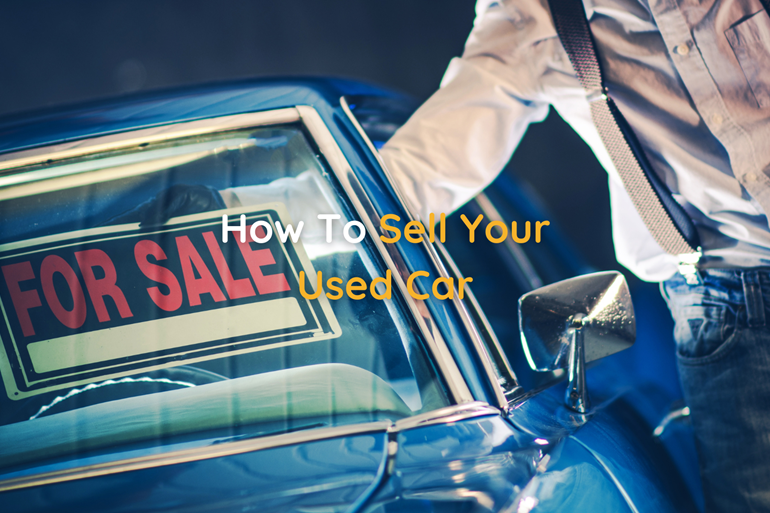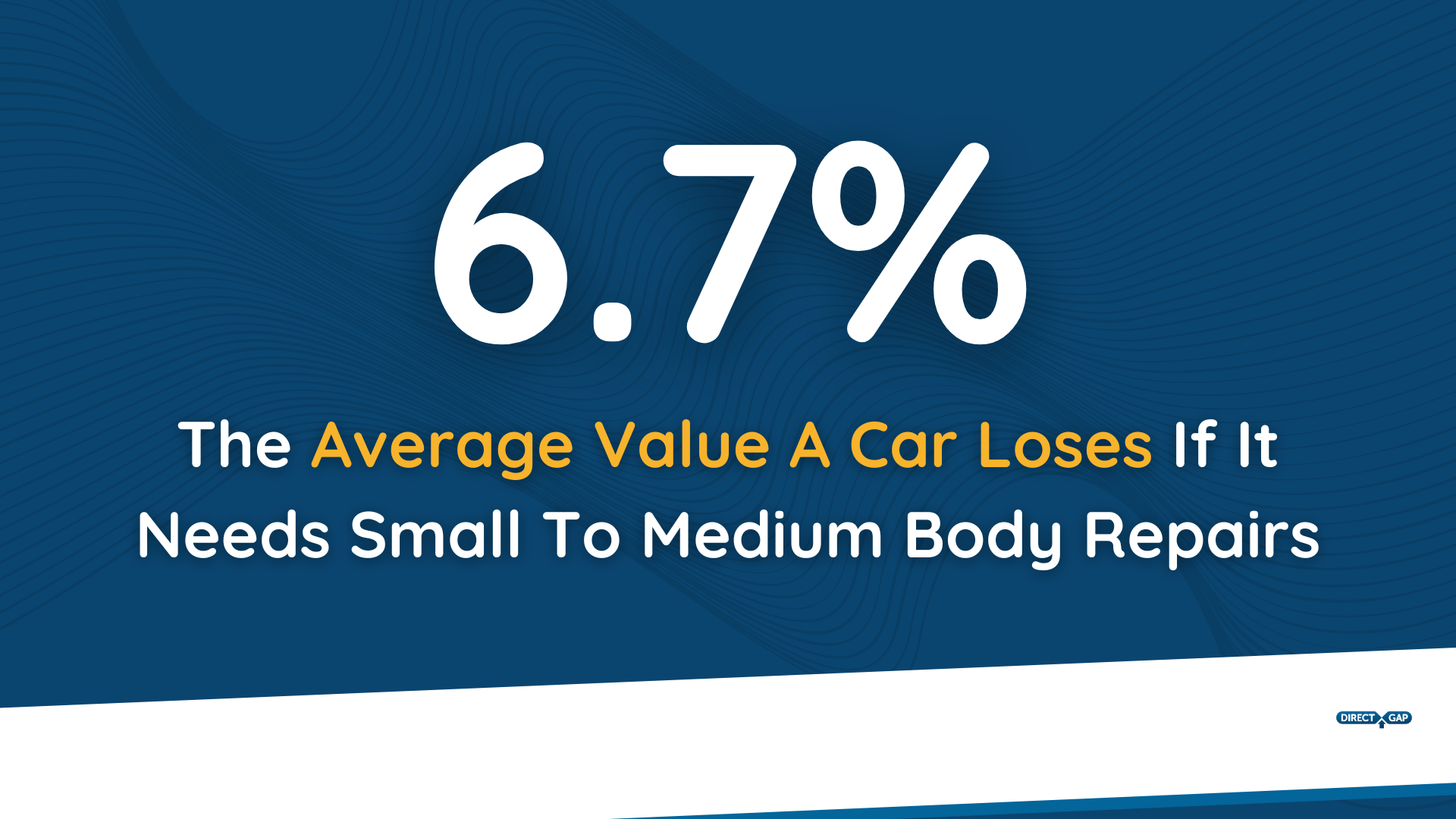
How To Sell Your Used Car
Keep Car Selling Simple With Out Comprehensive Guide…
Quick Links
- Introduction
- What Happens To Road Tax When Selling A Car?
- Can I Sell A Car That's Still On Finance?
- Deciding How To Sell Your Car
- Preparing Your Car For Sale
- Setting The Right Price
- Advertising Your Car
- Dealing With Buyers
- Completing The Sale
- Our Final Word
Introduction
Selling a used car can feel like a major headache. There's a lot to think about; between setting the right price, finding a buyer, and handling paperwork.
Don’t worry; whether you’re trading in, selling privately, or using an online platform, this guide will walk you through every step to make the process as smooth as possible.
First, though, let’s take a look at some of the basics:
What Happens To Road Tax When Selling A Car?
In 2014 the government changed the rules for road tax when selling a car, now, road tax is not transferable to the buyer.
Your buyer must tax the car before they can drive it away, which means they must have insurance too (as you can’t have one without the other).
On the day you sell the vehicle, you should notify the DVLA that you have done so. During their processing, they will refund any amount overpaid on your road tax.
Can I Sell A Car That’s Still On Finance?
You can sell a car purchased on finance, however, you must settle the outstanding finance amount before transferring ownership to the buyer.
To do this, call your finance company to obtain a ‘settlement figure’; a lump sum they will take to clear and end your finance agreement. Whilst there can sometimes be a fee for early settlement, in most cases, the settlement figure is lower than the amount you’d pay overall if you just paid your monthly repayments for the duration of the agreement; that’s always a bonus!
What about negative equity? In some cases your settlement figure may be higher than the amount you’re expecting to sell your car for; which is known as ‘negative equity’. Unfortunately, there’s not a lot you can do in this situation, you’ll still be liable for the full amount the finance company expects.
During your car ownership, Gap Insurance can help negate this issue; if your car is ever written off. With a Gap Insurance policy, you’ll be paid the difference between your insurance settlement figure and the amount you still owe on finance (if it is greater).
Deciding How to Sell Your Car
First things first; how do you want to sell your car? Each method has pros and cons, so it’s worth considering your priorities before deciding.
Private Sale
If you want to get the most money for your car, selling privately is usually the best option. You can set your price and negotiate directly, effectively ‘cutting out the middleman’, meaning more money in your pocket.
However, it does require much more effort than part exchanging or using an online car buying service as you’ll be responsible for advertising, handling enquiries, meeting potential buyers and paperwork.
Trade-In at a Dealership
Trading in, or ‘part exchanging’ your car is by far the easiest way to sell, but convenience does come with some cost. Dealerships typically offer less than you’ll achieve selling privately, with their prices usually based on a ‘trade price’ or ‘Glass Guide’ price. What’s more, whilst they don’t always, dealers will also include a little extra as a profit margin when they come to reselling your car.
On the other hand, a dealership really does simplify the sales process, handling all the paperwork and removing the hassle of dealing with viewings; they’ll pretty much take the car off your hands.
Online Car Buying Services
Websites like WeBuyAnyCar and Motorway offer quick sales without the hassle of private selling. You get an instant quote, drop your car off, and walk away with the money.
Just keep in mind that online buyers often offer less than a private sale, and the final valuation may differ from the initial quote upon inspection.
A study by Autotrader suggests that on average selling your car privately achieves an extra £958 than selling through online car buying services.
Our Advice: As with most things car buying and selling, it’s down to personal preference and what feels right for you. That said, we’re big advocates of trading in cars over selling privately or online; if you’re in the market to buy.
Whilst you might not be achieving maximum value for your car (compared to selling privately), we think it’s worth it when it comes to the reduction in red tape. As well as that, you could build some leverage towards your next vehicle.
Read More: Buying a new car? Here’s our guide on How To Negotiate The Price Of Your New Car.
Preparing Your Car for Sale
A well-presented car sells faster and for a better price. Here’s how to make sure yours is in top shape before listing it.
Clean Inside and Out
Give your car a deep clean, inside and out. A professional valet service can be worth the investment, but if you’re doing it yourself, focus on:
- Washing and waxing the exterior
- Vacuuming carpets and seats
- Wiping down the dashboard and door panels
- Cleaning the windows and mirrors
Fix Minor Repairs
Small issues like scratches, scuffed alloys, or faulty lights can knock money off your car’s value. Fixing these before selling can pay off in the long run.
If you’re worried about minor repairs in future, consider Scratch & Dent Insurance which provides peace of mind and protection against bumps and scrapes.

Cars requiring a SMART repair can decrease in value up to 6.7%
Gather All Paperwork
Having all your documents ready makes the sale process much smoother. Make sure you have:
- V5C logbook (to transfer ownership)
- MOT certificate
- Service history
- Receipts for any recent repairs or maintenance
It may be worth reading our guide; ‘How To Prepare Your Car For PCP End Of Term Inspection’ which gives some logical advice on prepping your car. Although it’s geared towards a PCP inspection, there’s plenty of stuff that’s applicable, no matter what.
Setting the Right Price
Pricing your car correctly is key to attracting buyers. Too high, and you’ll struggle to get interest. Too low, and you’ll lose money unnecessarily.
Check Online Listings
Look at similar cars on platforms like Autotrader, eBay Motors, and Facebook Marketplace to get a sense of the going rate for your make, model, and mileage.
Use a Car Valuation Tool
Online car-buying companies will give you a valuation for your car before you make an appointment to see them; which could help you get a rough idea of how much to sell yours for.
Be Realistic
Consider factors like condition, mileage, and optional extras. If your car has full service history and low mileage, you can justify a slightly higher price.
Thinking about why cars depreciate is important when putting a value on your car. Read our guide; ‘Why Do Cars Depreciate’ to better understand the factors that impact your cars resale value. For instance, you may want to knock some money off, if your car has particularly high mileage.
Advertising Your Car
Once your car is ready to sell, it’s time to list it. Good advertising can make all the difference in how quickly you find a buyer.
Take High-Quality Photos
A picture says a thousand words; so make sure yours say the right ones! Take clear, well-lit photos from multiple angles, including:
- Front, rear, and side views
- Interior (dashboard, seats, boot space)
- Close-ups of key features (alloys, infotainment system, etc.)
A ‘walkaround’ video of the vehicle plus footage of the car starting up and idling can provide added peace of mind for buyers and cut down on some repetitive questions from buyers such as ‘Does the car run ok?’
Write an Honest and Detailed Description
Be clear about your car’s condition, service history, and key selling points. Avoid overhyping; if a buyer turns up and the car isn’t as described, you’ll waste both your time and theirs.
Where to Advertise
Consider listing your car on multiple platforms for maximum exposure. Popular options include:
- Autotrader: With 39000 cars added daily, you’re in good company. Remember, high-quality photos and videos can make all the difference on a saturated platform.
- eBay Motors: 3.5 million unique visitors every month means your car could be in front of a massive audience.
- Facebook Marketplace: Free listings and plenty of local buyers, Marketplace can be a goldmine for selling your car, but beware of scam buyers.
- Gumtree: Another free option with some paid extras available; Gumtree generates around 2.8 million buyer messages per month.
- Local classifieds: Specific, local listings are a good option that many sellers overlook, meaning your car could stand out.
Dealing with Buyers
Once your ad is live, expect some inquiries. Here’s how to handle potential buyers effectively.
Be Responsive
Answer calls and messages promptly. Buyers often move quickly, and hesitation could cost you a sale.
Arrange Safe Viewings
Meet buyers in a public place or at home if you feel comfortable. If possible, have a friend or family member present.
Allow Test Drives
Most serious buyers will want a test drive. Before handing over the keys, check their driving licence and ensure your insurance covers test drives.
Top Tip: When selling, use common sense, don’t hand over bank details before anyone has done a test drive, or get drawn into holding deposits, these can often be an elaborate scam. If it doesn’t feel right, walk away.
Completing the Sale
Once you’ve agreed on a price, it’s time to finalise the sale.
Accepting Payment
Be cautious when accepting payment. Bank transfers are safest, as cash can be counterfeit, and cheques can bounce.
Transfer Ownership
Complete the “new keeper” section of the V5C logbook and send it to the DVLA. If you’re selling online, some services handle this for you.
Provide a Receipt
It’s a good idea to create a simple receipt stating the car’s details, sale price, and both parties’ names and signatures.
Our Final Word
Selling a used car doesn’t have to be stressful. By choosing the right selling method, preparing your vehicle properly, and handling buyers professionally, you can maximise your car’s value while ensuring a smooth transaction. With a little effort, you’ll be handing over the keys and counting your cash in no time!
We hope this guide helps you sell your car for the most money, with the least hassle. If you’ve found it useful, please share it with your network! Remember, if there’s anything you think we’ve missed, we want to know about it! Message Luke using our social media channels; he’s always happy to help.
Pin It!













